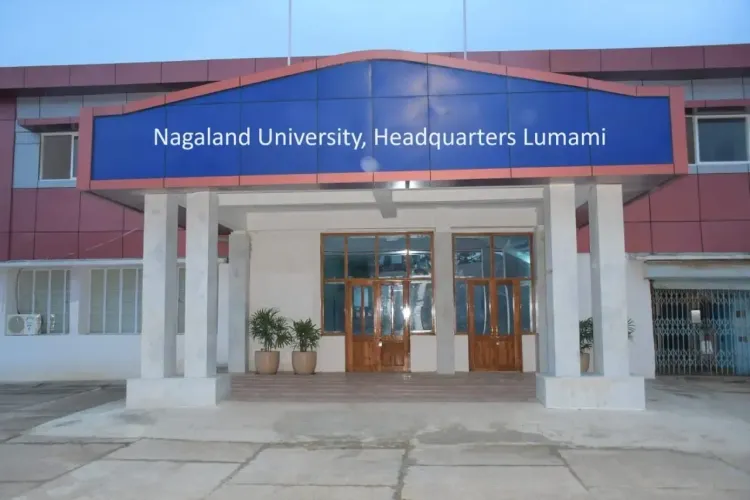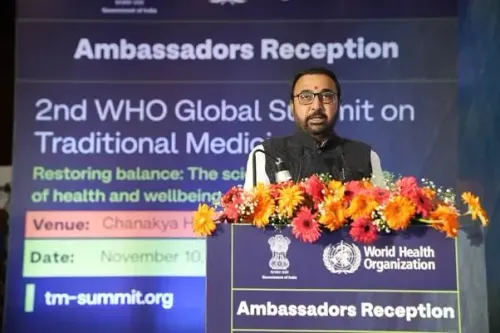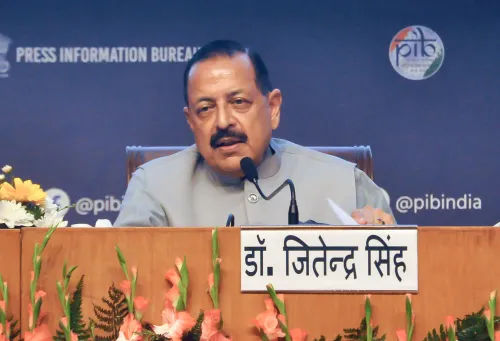Nagaland: New IKS Research Centre to Investigate Water Management in Agriculture and Culinary Traditions

Synopsis
Key Takeaways
- Nagaland University establishes an IKS Research Centre.
- Focus on indigenous water management and culinary practices.
- Research aims for sustainability and community recommendations.
- Traditional practices are essential for agriculture and cultural identity.
- Monitoring systems crucial amidst climate change.
Kohima, April 7 (NationPress) The Nagaland University, the sole central university in the state, has been granted an ‘Indian Knowledge Systems’ (IKS) Research Centre to explore indigenous knowledge systems related to water management in agriculture and ethnic culinary customs among the tribal populations of this northeastern region.
With a population of two million as per the 2011 census, 86.5 percent of whom are tribal, Nagaland hosts numerous indigenous tribes, each boasting unique cultural traditions, including specialized methods for water management and distinctive cooking practices.
A university representative noted that these systems are essential for the community’s agricultural livelihoods and cultural identity.
The Indian Knowledge Systems (IKS) initiative is a pioneering program under the Union Ministry of Education at AICTE (All India Council for Technical Education), New Delhi.
This initiative aims to promote the rich heritage of India and traditional knowledge across various sectors such as Arts and Literature, Agriculture, basic sciences, engineering and technology, architecture, management, and economics.
The Vice Chancellor of Nagaland University, Prof. Jagadish K. Patnaik, commented that the state is inhabited by diverse indigenous tribes, each showcasing unique cultural practices, including traditional systems for water management and ethnic cuisine.
“The traditional knowledge regarding water management systems in agriculture and ethnic cuisine among Nagaland’s tribal communities will serve as a resource for documentation and dissemination for future sustainability,” he stated.
Prof. Patnaik further mentioned that based on the research findings, the university could also provide recommendations to local communities for enhancing these systems.
“Monitoring and evaluating the performance of current systems is crucial for understanding their sustainability, profitability, societal impact, and replicability, especially in light of climate change,” he added.
The traditional practices of water management in Nagaland are varied and deeply embedded in the community’s culture. These practices encompass rainwater harvesting through ponds or wooden tanks, terracing to prevent agricultural erosion, managing spring water, and utilizing bamboo for long-distance water transport. Such methods are vital for both agricultural productivity and environmental preservation.
Nagaland’s cuisine is known for its robust flavors and local ingredients, with traditional cooking techniques carefully handed down through generations.
Discussing the upcoming Research Centre, Principal Investigator Chitrasen Lairenjam, Associate Professor in the Department of Agricultural Engineering, stated that the project aims to study the fundamental practices employed by farmers in managing and sustaining these systems.
“This project also seeks to document and disseminate knowledge about these practices to ensure future sustainability. Through research, education, and mentoring, we will evaluate the relevance of these traditional systems in the current climate and agricultural landscape, identify potential gaps, and recommend improvements,” Lairenjam explained.
He expressed optimism that the research would enhance understanding of the role of indigenous knowledge in sustaining agriculture in Nagaland amidst evolving environmental conditions.
The academician highlighted that the primary focus of this IKS Research Centre is the documentation, research, mentoring, and dissemination of indigenous knowledge regarding water management systems in agriculture and traditional ethnic culinary practices among Nagaland's tribal community.









